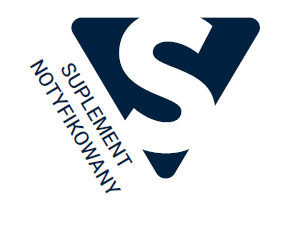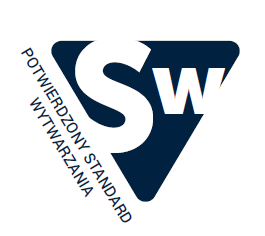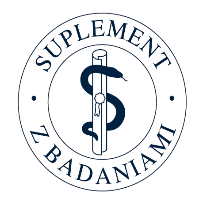 photo: freestocks.org from Pexels
photo: freestocks.org from PexelsWhat is supplementation? Do I need it? If so, what vitamins, trace elements, or other substances does my body need? What about my child’s needs? Or my friend’s, who is very active in sports?
The initial conclusions drawn from these questions are as follows:
- supplementation should be individualized, following consultation with a specialist,
- incorrectly chosen supplements may lead to additional health problems, especially for people who take medication regularly or those who consume too many supplements at high doses,
- use dietary supplements wisely only when needed, or avoid them entirely if they may negatively impact your health.
How can we practically apply these recommendations? This is no easy task, especially as we are constantly bombarded by ads for miracle products for weight loss, better sleep, well-being, good digestion, and many other conditions.
Let’s try to navigate through this maze of marketing messages and find reliable information about dietary supplements. What should we know to use these products safely? This brings up several important questions:
- Is a given dietary supplement approved for use in Poland?
- Does the manufacturer meet the standards that guarantee product quality?
- Is the chosen supplement safe for me, and is its use beneficial?
We can answer the first question by consulting the Main Sanitary Inspectorate register. In the register, we’ll find basic information about dietary supplements, such as the product name, form, qualitative composition, the name of the entity that markets the supplement, GIS’s administrative decisions, and additional notes (e.g., if the product is banned from sale).
Consulting the register thus allows us to take the first important step: determining whether a supplement is legally on the Polish market.
The answer to the second question about the manufacturer and product quality is more complicated. The GIS register will tell us who the manufacturer is, but we won’t know whether the product quality is satisfactory or if product x or y with a similar composition is preferable.
To help answer these questions, there is the Suplindex – dietary supplements service. It is the first information and educational program in Poland that organizes the dietary supplement market based on current knowledge. Although the materials on the site are provided by dietary supplement manufacturers, they contain valuable information that is difficult to find on other platforms.
All products listed in the Suplindex catalog have been submitted to the Main Sanitary Inspectorate and successfully completed the notification process. This means they are approved for sale in Poland. They are marked as follows:
 A dietary supplement for which the manufacturer has provided all necessary information and documentation confirming its registration with the Main Sanitary Inspectorate
A dietary supplement for which the manufacturer has provided all necessary information and documentation confirming its registration with the Main Sanitary InspectorateAnother key piece of information in Suplindex is whether the dietary supplement was produced according to a safety standard. The manufacturer must prove that additional, non-mandatory safety standards were implemented during production and distribution. The "Confirmed Manufacturing Standard" mark is based on voluntary certification undergone by the manufacturer, and the quality and value of documents are verified by Suplindex specialists:
 A dietary supplement produced in a facility certified to one of the recognized safety standards
A dietary supplement produced in a facility certified to one of the recognized safety standardsThe last, very important label that may appear with dietary supplements in the Suplindex catalog is the “supplement with research” designation:
 A dietary supplement tested in accredited laboratories
A dietary supplement tested in accredited laboratoriesThis label helps consumers assess product quality. The manufacturer has subjected the product to independent testing and implemented quality standards that confirm the composition aligns with the values declared on the packaging. The tests must be conducted by independent, accredited laboratories to confirm the supplement’s safety.
One downside of Suplindex is that not all supplements available on the Polish market and listed in the GIS register are included in the catalog. This is because not all manufacturers choose to include their supplements in the catalog and undergo verification. However, those who do gain credibility.
Besides Suplindex, information about supplements, their quality, and uses can also be obtained in pharmacies. This is especially relevant for manufacturers who have been on the market for years and prioritize educating pharmacists and pharmacy technicians, providing them with detailed information on supplement composition, quality, and dosage.
Speaking of pharmacists, we would also like to mention the blog by Zosia Winczewska and her mini guide on the most commonly used supplements. The content in this guide is written in an accessible way, and its practical tips help users choose the right dietary supplement.
By relying on the knowledge of pharmacists, doctors, and other specialists, we can therefore answer the third question posed in this article: Is the selected dietary supplement safe for me, and is its use beneficial?
Unfortunately, there is no comprehensive source of information in Poland on supplementation and dietary supplements available in pharmacies and beyond. No portals are dedicated to supplement safety where we could find complete information about these products - from registration to testing and safe use. Information about dietary supplements often mixes with advertising, and we constantly hear advice about the importance of supplementation.
Therefore, the sources of information mentioned in this article are only guideposts through the maze of advertising and sponsored content. We hope they help to somewhat organize the information chaos, and that equipped with knowledge from the GIS register, Suplindex, and Zosia Winczewska’s blog, we will have a clearer view of the need to purchase a dietary supplement or decide to skip another "miracle product." At the same time, it would be wise to reevaluate our diet, increase physical activity, reduce stress, and spend more time with family and friends. Then we might find that no supplementation is needed at all.
Also read:
COMMERCIAL BREAK
New articles in section Marketing and PR
Brand visibility in the age of algorithms
Aleksander Pawzun
A few years ago, everything was simpler. It was enough to have a good website, do SEO, run a blog, and publish on social media. Whoever was systematic was visible. Whoever invested in content and positioning gained customers. That world no longer exists.
Queue psychology. Scientists' discovery used in Call Centers
Andrzej Sowula
The discovery first described by psychologists in the second half of 2024 concerns the so-called "relative progress effect". When customers observe fast service at the beginning of their wait, they tolerate slower service much better later in the waiting period.
#POMAGAM2026 Can a New Year's resolution go viral?
wspieramy
Is a million good deeds a lot? Ten-year-old Emilka wants to find out. She just announced the I Resolve to Help campaign on the internet and urges everyone to make a unique New Year's resolution. That we help each other more often in 2026.
See articles on a similar topic:
Dietary Supplements. How to Distinguish Information from Marketing
Ewa Zygadło-Kozaczuk
Where can you find reliable information about dietary supplements, and how can you distinguish factual information from advertising? The answer is not straightforward. In fact, additional doubts arise.
Short Social Video. IAB Poland Report on Short Videos in Social Media
Krzysztof Fiedorek
According to the IAB Poland report from May 2024, short video clips are becoming increasingly popular in Poland. In 2023, 61% of internet users in Poland watched the format known as short social video, and 23% of them created such videos themselves. Polish internet users spend an average of 43 minutes a day watching them.
Influencer Advertising. Teenagers Do Not Always Recognize It
KFi
The rise in the popularity of influencer-promoted content among young people raises issues with their ability to identify the commercial nature of this content. Subtler forms of promotion are often completely unrecognizable to younger teens.
AI will take up to 70% of traffic from online stores. TrustMate Report
KFi
There is a quiet but radical change happening online. Traditional SEO, which for decades determined brand visibility, is losing its relevance. Now, it's no longer search engines that define a company’s online presence, but generative artificial intelligence.





























